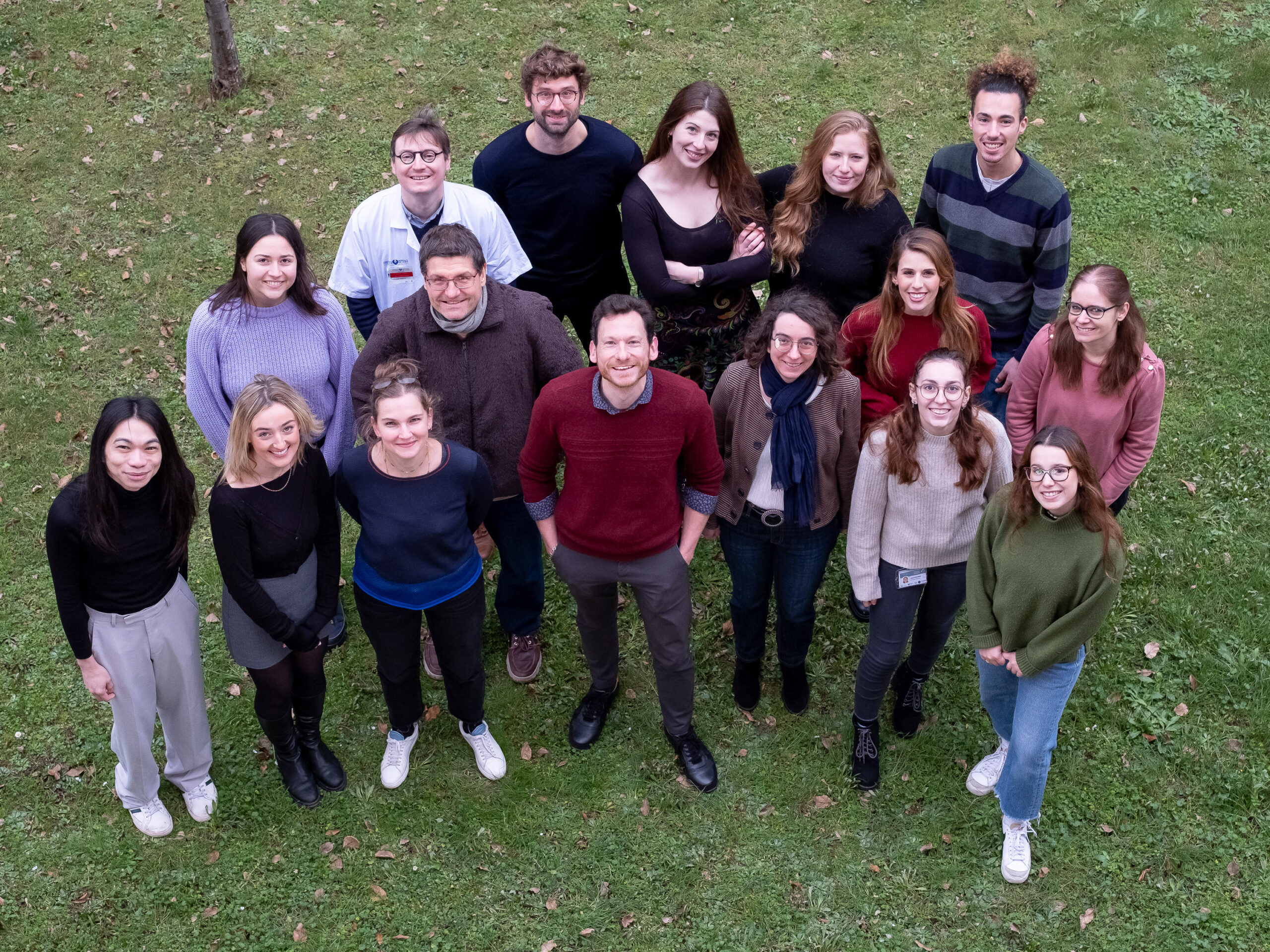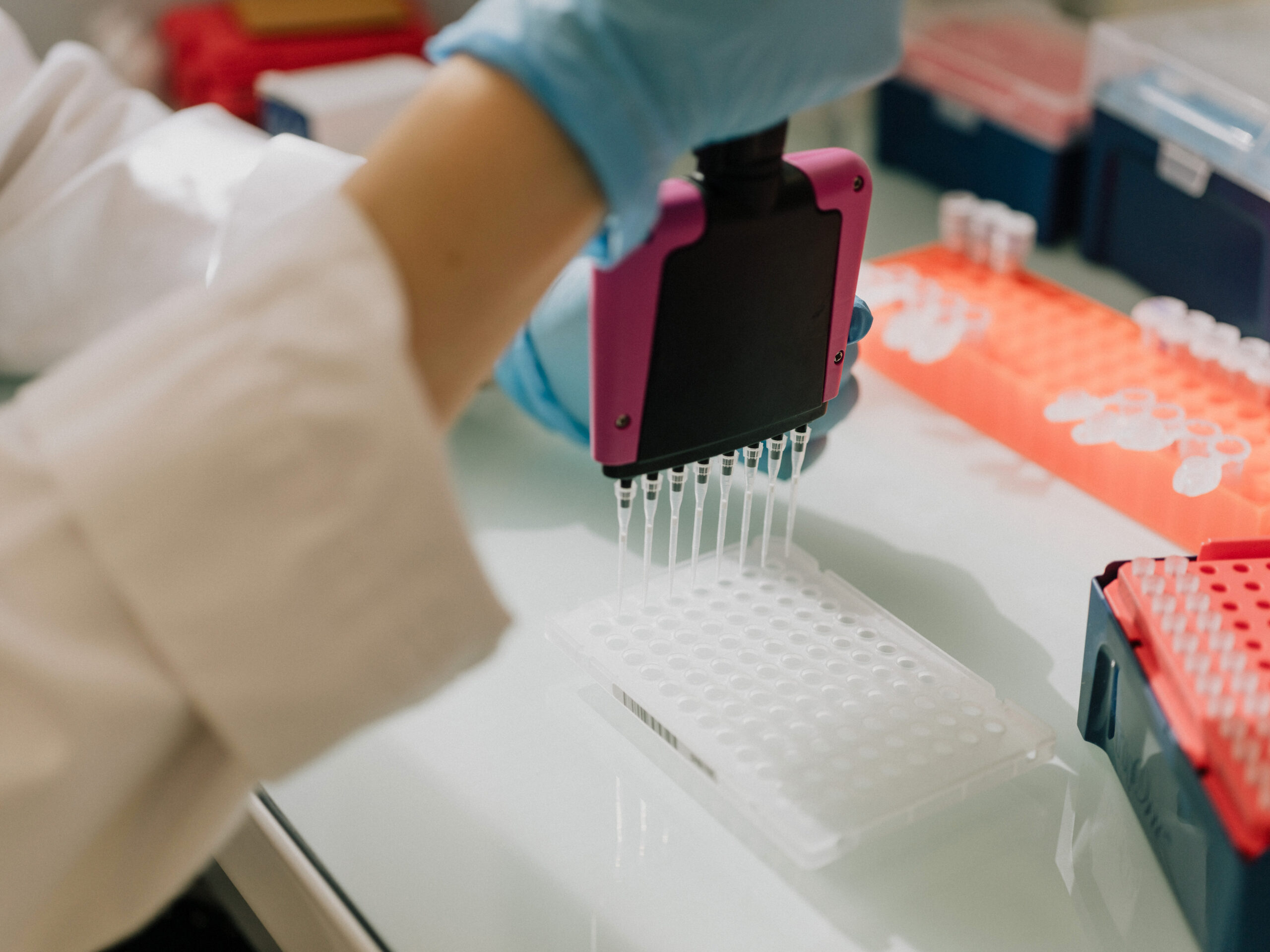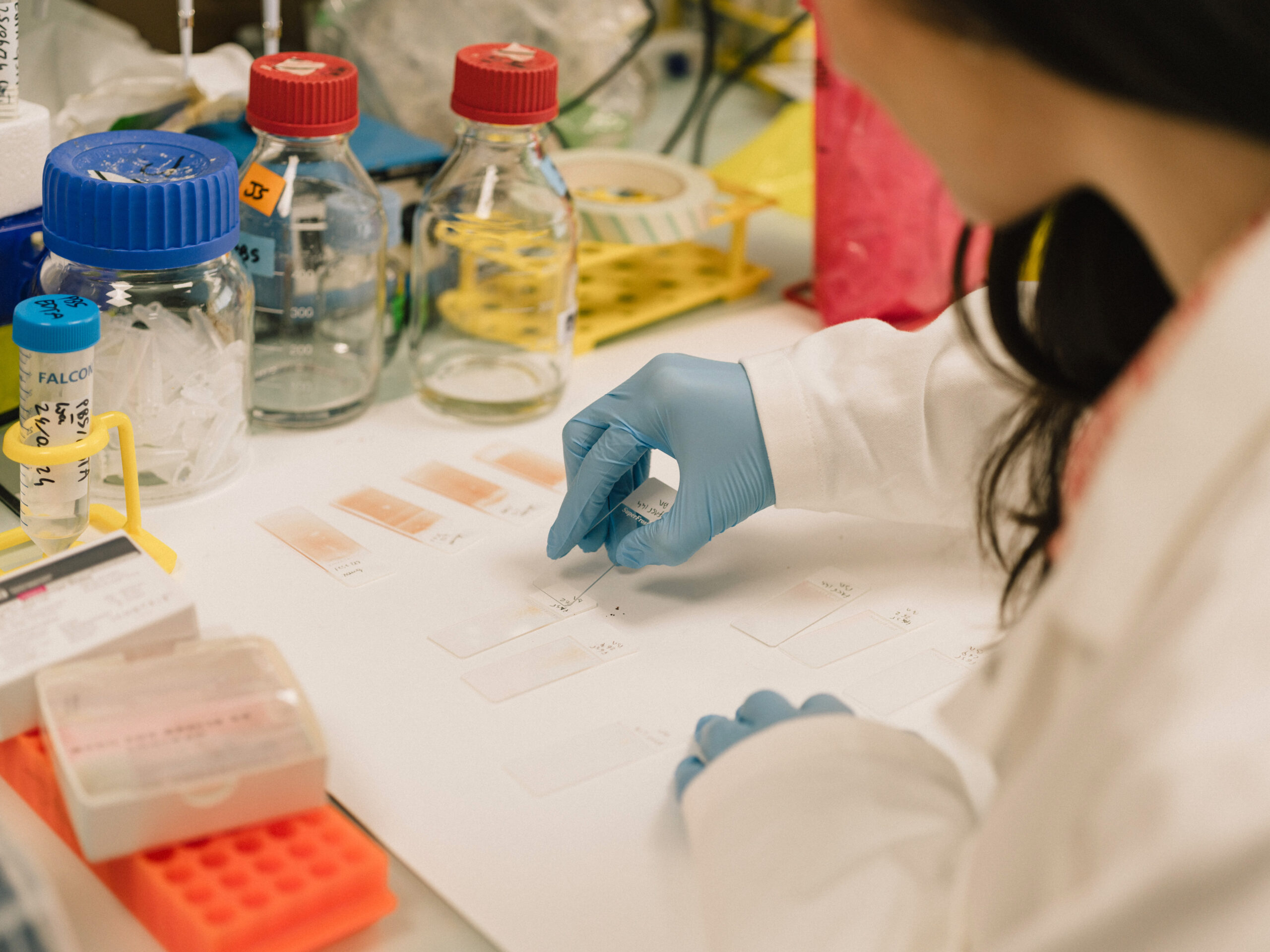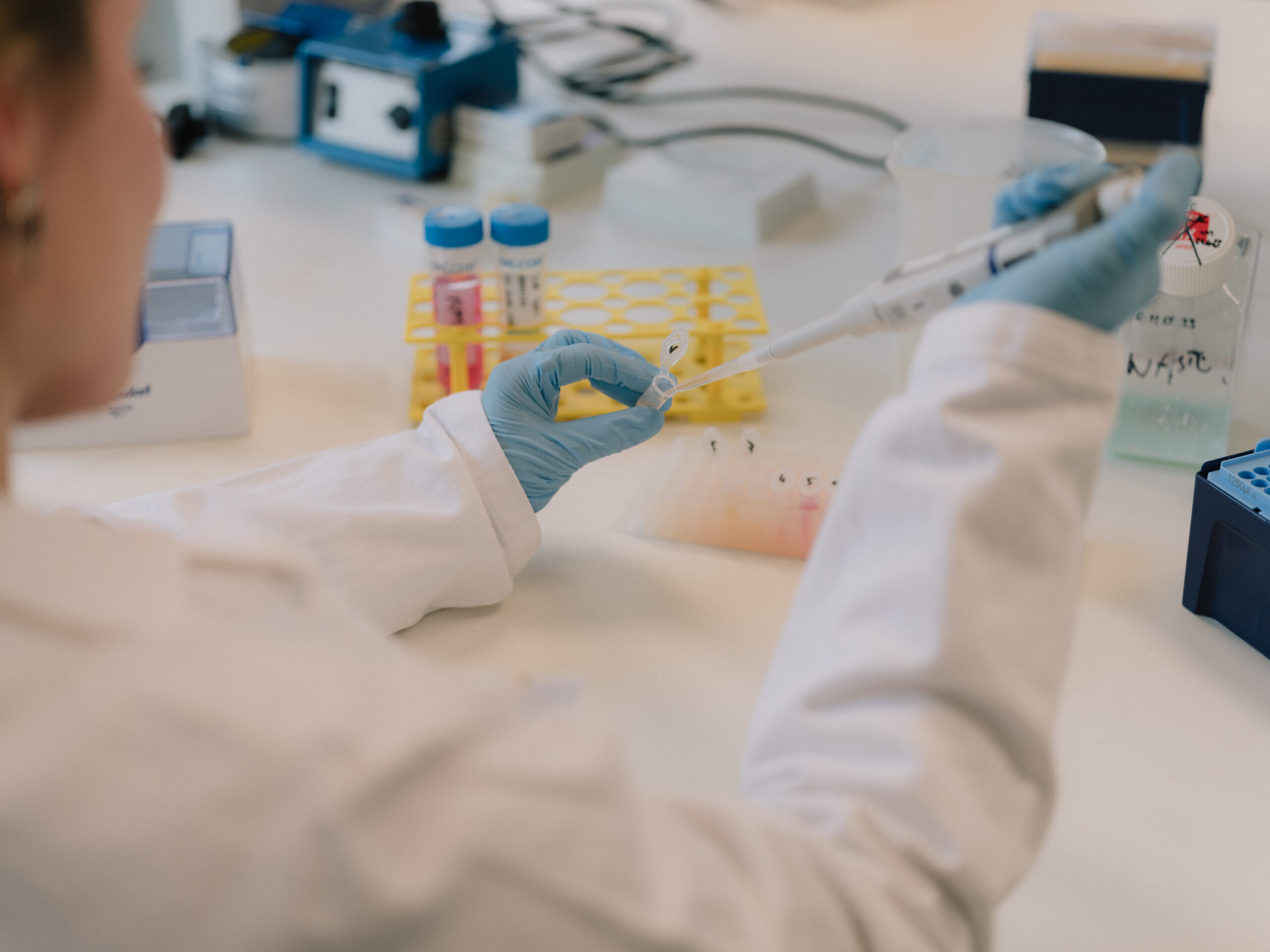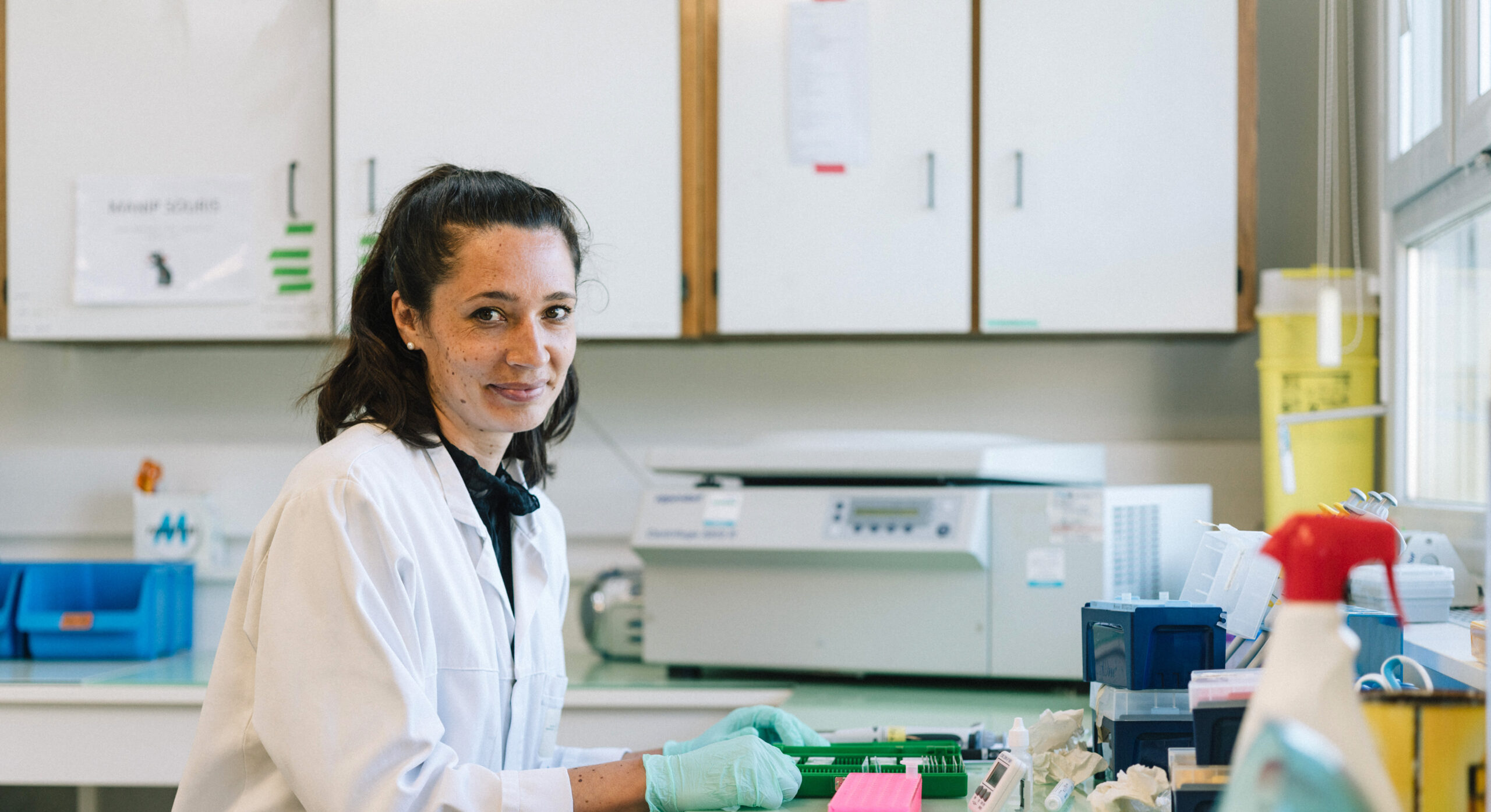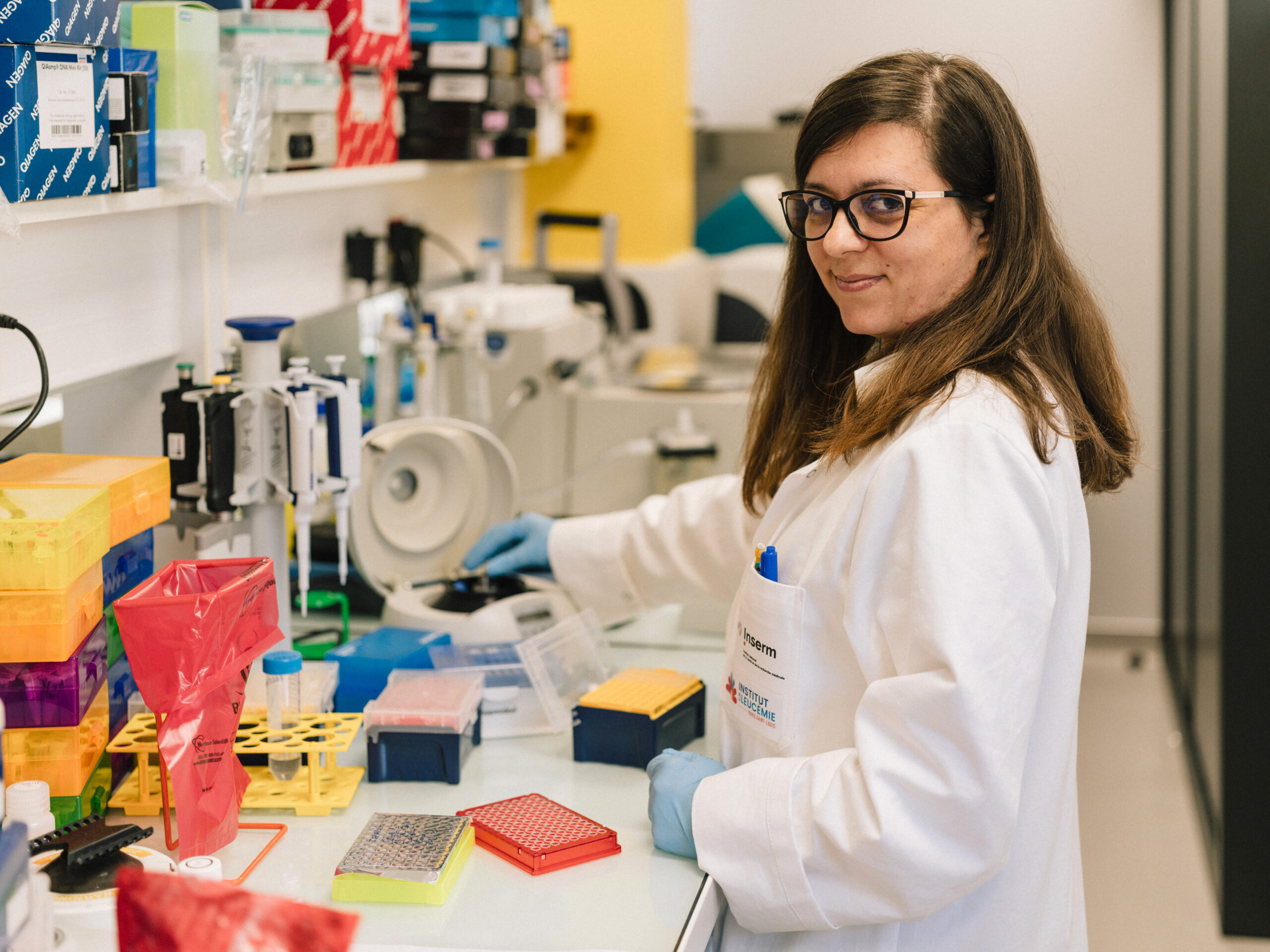- About us
- A new Institute dedicated to combating leukemia
- Scientific and medical program
- History of Hematology on the Saint-Louis Campus
- The Leukemia Institute’s governance
- Press
- Contact us
- Our news
- Profile of Valéria Bisio, Research Officer
- Creation of a Hemato-Oncogenetics Unit
- Profile of Alice Gros, a peer-support patient
- Winners of the Leukemia Institute’s first call for projects
- Profile of Julien Calvo, researcher
- Support us
- Join us
- You are
- Patients and relatives
- To receive care and support
- Become an expert patient
- Discover the Leukemia Institute
- Researchers
- Research
- Clinical trials
- Discover the Leukemia Institute
- Healthcare professionals
- Refer a patient
- Our clinical research
- Discover the Leukemia Institute
- Industry partners
- Discover the Leukemia Institute
- Translational research
- Donors
- Support us
- Discover the Leukemia Institute
- Care
- Patient care
- Being Treated at the Leukemia Institute
- Cancer treatments
- Supportive Care
- Open Multidisciplinary Meetings
- Our clinical services
- Saint-Louis Hospital – Department of adult hematology
- Saint-Louis Hospital – Hematology Transplant Unit
- Saint-Louis Hospital – Department of Pharmacology and Clinical Investigations
- Saint-Louis Hospital – Adolescent and Young Adult Unit
- Saint-Louis Hospital – Outpatient Hemato-oncogenetics Unit
- Saint-Louis Hospital – Department of senior hematology
- Robert-Debré Hospital – Department of pediatric hematology and immunology
- Necker Hospital – Department of Adult Hematology
- Cochin–Port Royal Hospital – Department of clinical hematology
- Avicenne Hospital – Department of clinical hematology and cell therapy
- Our medical laboratories
- Hematology Medical Laboratory, Michaela Fontenay
- Hematology Medical Laboratory, Jean Soulier
- Molecular Genetics Unit, Hélène Cavé
- Hematology Medical Laboratory, Vahid Asnafi
- Patient information
- Acute Myeloid Leukemias
- Acute Lymphoblastic Leukemias
- Myeloproliferative Neoplasms
- Myelodysplastic Syndrome
- Cancer treatments
- Supportive Care
- Psychological Support
- Research
- Our research teams
- Hugues de Thé’s team – Molecular pathology
- Raphaël Itzykson’s team – Functional precision medicine for leukemia
- Michaela Fontenay’s team – Normal and pathological hematopoiesis
- Françoise Pflumio’s team – Niche, Cancer, and Radiation in Hematopoiesis
- Sylvie Méléard’s team – Population Evolution and Interaction Particle Systems
- David Michonneau’s team – Translational Immunology in Immunotherapy and Hematology (TIGITH)
- Lina Benajiba’s team – Identification and targeting of extrinsic regulators of myeloid malignancies
- Karl Balabanian’s team – Lymphoid niches, Chemokines and Immuno-hematological syndromes
- Alexandre Puissant’s team – Molecular Mechanisms of Acute Myeloid Leukemia Development
- Stéphane Giraudier’s team – Chronic Myeloid Malignancies, Microenvironment & Translational Research
- Diana Passaro’s team – Leukemia & Niche Dynamics
- Camille Lobry’s team – Genetic and Epigenetic control of Normal and Malignant Hematopoiesis
- Jean Soulier’s team – Stem cell dysfunction and secondary AML
- Sylvie Chevret’s team – Biostatistics and clinical epidemiology
- Our technological platforms
- Our clinical research
Accueil Alexandre Puissant’s team – Molecular Mechanisms of Acute Myeloid Leukemia DevelopmentAlexandre Puissant’s team – Molecular Mechanisms of Acute Myeloid Leukemia Development
...Alexandre Puissant
Team leader
Institut de recherche Saint-Louis
His team was created in 2017,labeled ATIP-AVENIR (2017–2020), then ERC StG (2018–2024), and more recently ERC CoG (2024–2029).
Research themes
The team focuses on:
- understanding the complex biology of acute myeloid leukemias (AML) and
- discovering promising therapeutic approaches aimed at optimizing responses to existing targeted therapies and frontline treatments.
To do this, we deploy large-scale screening strategies, functional genomics, and proteomics applied to preclinical murine models (xenografts from syngeneic mice and patient-derived xenografts, PDX). Leveraging our expertise in AML biology and advanced functional genomics and large-scale in vivo screening tools, our research program revolves around three projects.
- Acute myeloid leukemias (AML)
- Malignant hematological diseases
Research areas
By deploying large-scale functional screening approaches, we assess in mouse models the functional relevance of metabolic and epigenetic drivers in enabling leukemic blasts to progress toward malignancy, independently of mutational variations and clonal heterogeneity.
We apply bioinformatics and biostatistical methodologies derived from artificial intelligence to syngeneic mouse models, combined with deep sequencing of serial patient samples (diagnosis/relapse), to refine the evolutionary trajectories of leukemic clones from initiation to treatment resistance. This allows us to identify adaptive dead-ends that transformed cells are forced to enter, which can be targeted for eradication.
We have developed the RAINBOW program, which leverages functional precision medicine biomarkers based on flow cytometry to improve patient care pathways and identify new therapeutic repositioning strategies or novel drug combinations. This multiparametric pharmacological screening approach, conducted under pseudo-niche conditions, assesses in the context of first-in-human clinical trials (relapsed or refractory patients) the surface antigen expression or preclinical activity of new compounds or combinations on clinically and genetically annotated primary patient samples, including within defined target populations.
Featured research projects
Deciphering defects in cell polarity in acute myeloid leukemia: mechanisms and therapeutic avenues
Khansa SAADALLAH
Modeling chemotherapy persistence mechanisms to uncover their molecular underpinnings and develop strategies to circumvent them
Thierry TCHENIO
Targeting the myeloid-specific isoform PIK3CG using heterobifunctional PROTAC-type degrader molecules to block AML progression.
Lois Kelly
Alexandre Puissant's team members
Alexandre PuissantTeam leader, Inserm DR2, HDRNina FenouilleProject Manager, Inserm CRCNThierry TchenioInserm CRCN, HDRLionel AdesPU-PH, HDRThorsten BraunPU-PH, HDRRaphaël ItzyksonPU-PH, HDRMarie SebertPU-PH, HDRMatthieu DuchmannAHU, CCA Inserm-BettencourtKevin BoumegharMaster 2 StudentLucie FreimanPhD 1st yearGerasimos TsilimidosVisiting Clinical FellowCarine LegrandPostdoc, OPALE Carnot InstituteCaique Lopes SouzaPostdoc, Inserm CDDKhansa SaadallahPostdoc, Inserm CDDNuria Alvarez PizarrosoPhD 4th yearNicolas LecornecPhD 2nd yearLois KellyPhD 4th yearLéa Pelissier MenjaudPhD 2d yearChloé ZédouardPhD 2d yearJuliette CharlesAssistant Engineer, Inserm CDDMorgane FontaineResearch Engineer, AP-HP CDDCatherine LongchampAssistant Engineer, Inserm CDDKim PacchiardiResearch Engineer, AP-HP CDDScientific publications
Kevin H. Lin & al, Nature Genetics, 2020
Using antagonistic pleiotropy to design a chemotherapy-induced evolutionary trap to target drug resistance in cancerRead the publicationLois M. Kelly & al, Nature Cancer, 2024
Targeting a lineage-specific PI3Kɣ–Akt signaling module in acute myeloid leukemia using a heterobifunctional degrader moleculeRead the publicationKevin H. Lin & al, Nature Cancer, 2022
P2RY2-AKT activation is a therapeutically actionable consequence of XPO1 inhibition in acute myeloid leukemiaRead the publicationJob offers
Biological Assistant Engineer
participating in a project on myeloid leukemias, using cellular and molecular techniques and murine experimentation.
Post-doctoral Fellow
Post-doctoral Fellow leading a project on the study of AML development.
Stay up to date by subscribing to the institute's newsletter
- Discover the Leukemia Institute
- Translational research
- Our clinical research
- Clinical trials
- Become an expert patient
- To receive care and support
- A new Institute dedicated to combating leukemia


